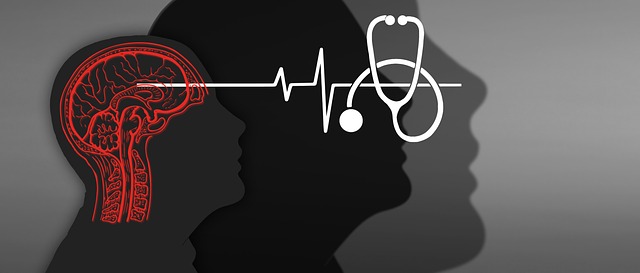Mindfulness practices offer a transformative approach to managing Oppositional Defiance Disorder (ODD) in Denver teens by promoting present-moment awareness and emotional acceptance, reducing impulsive reactions. Through journaling or mental wellness podcasts, teens can process emotions and foster personal growth. Despite developmental challenges and external pressures, age-appropriate mindfulness techniques build resilience and improve mental health. Integrating mindfulness into daily routines enhances well-being; consistent practice significantly improves ODD management. Overcoming resistance in Denver ODD therapy requires a strategic approach, focusing on open communication, safe spaces for emotional regulation, and tailored education programs to foster support and understanding within the community.
“Unwind and discover the power of mindfulness through this comprehensive guide tailored for teens. Explore how mindfulness meditation can be a game-changer, offering benefits that extend far beyond stress relief. We delve into common challenges faced by adolescents, providing practical tips to seamlessly integrate mindfulness into daily life. For parents and therapists supporting teens with Denver Oppositional Defiance Disorder (ODD), discover effective strategies to overcome resistance and encourage this transformative practice.”
- Understanding Mindfulness and Its Benefits for Teens
- Identifying Common Challenges in Teen Meditation Practice
- Practical Tips to Integrate Mindfulness into Daily Routines
- Overcoming Resistance: Strategies for Denver Oppositional Defiance Disorder (ODD) Therapy
Understanding Mindfulness and Its Benefits for Teens

Mindfulness is a powerful tool that can significantly benefit teens struggling with oppositional defiance disorder (ODD) in Denver. It’s about being fully present and aware of one’s thoughts, feelings, and bodily sensations without judgment. By cultivating mindfulness, teenagers learn to observe their emotions rather than reacting impulsively, which is particularly useful for managing ODD symptoms. This practice encourages self-awareness and emotional regulation, allowing teens to gain better control over their actions and interactions with others.
Understanding the mind-body connection, as promoted by Mind Over Matter principles, is a key aspect of mindfulness. Teaching teens to recognize triggers and understand the physical sensations that precede impulsive behaviors can empower them to make conscious choices. Additionally, engaging in mental wellness journaling exercises or listening to a well-produced mental wellness podcast series can further enhance their mindfulness practice. These activities provide an outlet for processing emotions, fostering self-reflection, and promoting personal growth.
Identifying Common Challenges in Teen Meditation Practice

Teenagers often face unique challenges when it comes to meditation practice due to their developmental stage and various external influences. One significant hurdle is the prevalence of Denver Oppositional Defiance Disorder (ODD) among this demographic, which can make focused attention a struggle. ODD symptoms, such as impulsivity and irritability, may hinder their ability to sit still and engage in mindfulness exercises effectively. As such, therapists and coaches who incorporate meditation into therapy or coaching programs need to be mindful of these potential obstacles when working with teens.
Moreover, the fast-paced nature of teen lives, with academic pressures, social media demands, and extracurricular activities, can make dedicating time to meditation a challenge. Encouraging resilience building through mindfulness should also be tailored to their age, addressing any stress management issues while offering practical techniques that resonate with teenagers. The goal is to help them develop healthy coping mechanisms that can enhance their mental wellness coaching programs development and overall well-being.
Practical Tips to Integrate Mindfulness into Daily Routines

Integrating mindfulness into your daily routine can be a powerful tool for managing stress and improving mental health, especially when navigating challenges like Oppositional Defiance Disorder (ODD) in Denver. Start with small, manageable steps to cultivate a consistent practice. Begin each day with a few minutes of mindful breathing exercises. Focus on slow, deep breaths, allowing your thoughts to come and go without judgment. This simple act can help center you and set the tone for a more calm and focused day.
Consider incorporating mindfulness into your evening routine as well. Activities like gentle stretching or a short meditation session before bed can promote relaxation and better sleep quality, which is essential for overall well-being. By integrating these practices, you’re not just managing symptoms but also nurturing the Mind Over Matter principles that empower individuals to take control of their mental health. Remember, developing a robust self-care routine, including mindfulness, can make a significant difference in managing ODD and enhancing daily life.
Overcoming Resistance: Strategies for Denver Oppositional Defiance Disorder (ODD) Therapy

Overcoming resistance is a significant aspect of Denver Oppositional Defiance Disorder (ODD) therapy. Many individuals with ODD may display defiant behaviors as a way to cope with underlying emotional distress or unmet needs. As such, therapists should focus on building a strong therapeutic alliance and fostering open communication to help clients understand the purpose and benefits of mindfulness meditation. By incorporating techniques from Burnout Prevention Strategies for Healthcare Providers, therapists can create a safe space where individuals feel heard, validated, and supported in their journey towards emotional regulation.
Mental Health Education Programs Design tailored for ODD should emphasize mindfulness as a tool for stress reduction and conflict resolution. Through Mental Health Awareness initiatives, the community can gain insights into the challenges faced by those with ODD and learn practical ways to offer support. By integrating mindfulness meditation into therapy and educational programs, professionals can help individuals with ODD develop coping mechanisms that promote better emotional balance and healthier relationships, ultimately enhancing their overall well-being.
Mindfulness meditation, despite initial challenges, can be a powerful tool in enhancing teen well-being and even offering effective Denver Oppositional Defiance Disorder (ODD) therapy. By integrating practical tips into daily routines, teens can develop a deeper sense of self-awareness and emotional regulation. Overcoming resistance requires patience and tailored strategies, making mindfulness a game-changer for mental health support among adolescents.














